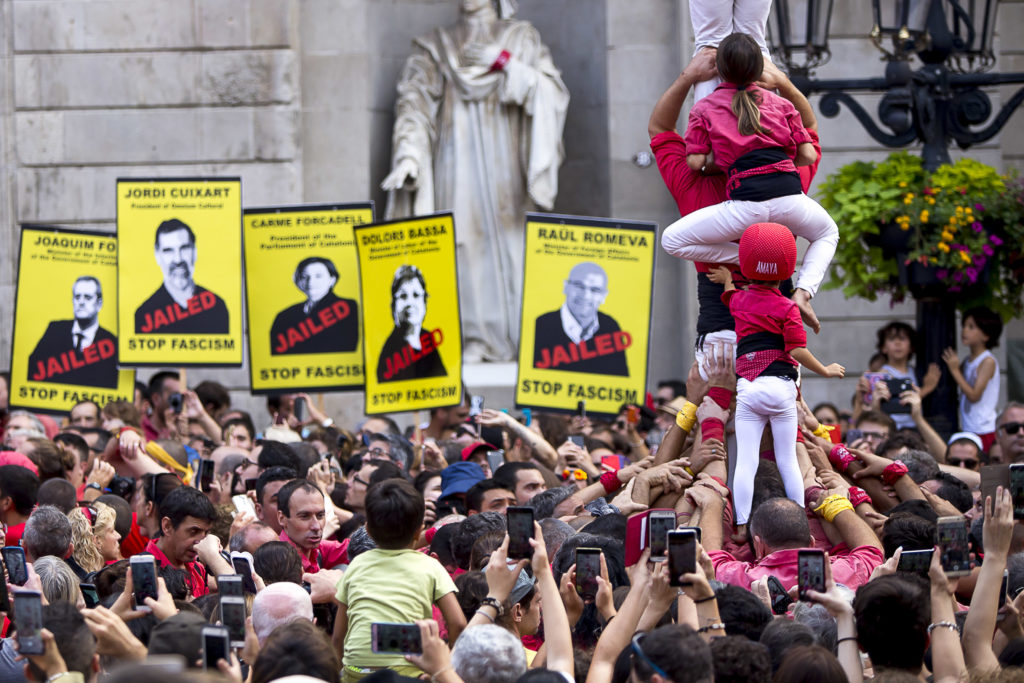02.01.2019 - 11:21
|
Actualització: 02.01.2019 - 12:21
One year ago, soon after the 2017 independence referendum and the subsequent Spanish repression, it was to be expected that 2018 would see the tension between Catalonia and Spain decline. And it has proved partially true –despite almost half a year of direct rule and the pre-trial imprisonments up from 4 to 9 at the end of the year.
Yet despite the latest dialogue efforts by the Catalan and Spanish administrations, everything can inflame again if the Spanish Supreme Court rules a long prison sentence for the political leaders involved in the 2017 referendum –as it is expected.
Referendum case trial
The trial on the 2017 referendum and declaration of independence is expected to start from late January. The prosecutor asks for the prosecuted leaders to be sentenced to a total of 177 years in prison for rebellion and misuse of funds –that includes the nine officials in pre-trial jail.
The trial is likely to last some three months, and the verdict might be out in summer or autumn, with the leaders likely to be jailed for a long time. If this happens, the Catalan president has already vowed to bring together politics and social organisations to respond.
A condemnatory sentence is likely to spark major outrage in the country. President Torra could call a snap election to see the support to independence after such verdict, although pro-independence leaders are more reluctant now than they were a year ago to call early elections and would rather see the consequences of the sentence creating instability in Madrid, not in Barcelona.
Dialogue and negotiation?
With the new Spanish socialist government, many analysts think that dialogue in order to find a way out to the national issue should be possible. Despite the pro-independence efforts, it is very unlikely that talks end in an agreed referendum due to Madrid’s opposition to such a vote. But will Spain offer something else to seduce a majority of Catalans?
If no solution is on the table, tensions will rise again both in the streets and between administrations, and combined with the trial’s verdict, next autumn might be, again, a very intense one.
2019 budgets and governance
Meanwhile, the day-to-day politics need to continue, and both Catalan and Spanish governments need to pass their 2019 budgets. Yet both of them will have a hard time to pass them, and it is unclear that they can make it.
Torra’s government is trying to get the support of left-wing Catalunya en Comú –which is pushing it to accept Spain’s spending plan.
But pro-independence parties have said ‘no’ unless there is some progress on the referendum or the jailed and exiled leaders –and their votes are essential for it to pass in Congress.
Elections to come
The budget deadlock might lead Spain to a snap election, which could join the local and European votes on May 26. In the first elections in which people born in the 21th century will have a right to cast their ballot, the far-right Vox party will test its strength in Spain after its sudden emergence in Andalusia in 2018.
In Catalonia, a high-level battle for Barcelona’s mayor will be run with Ada Colau, Manuel Valls and Ernest Maragall as top favorites.


